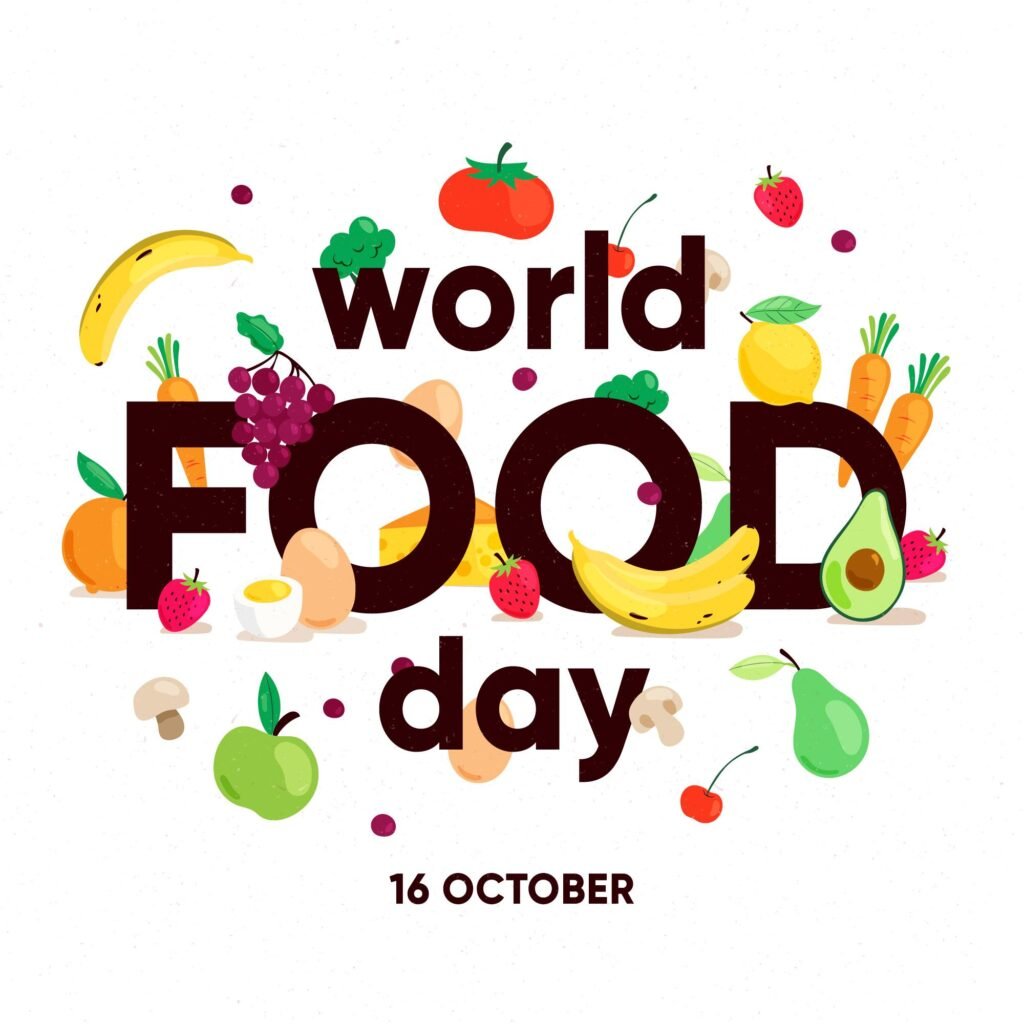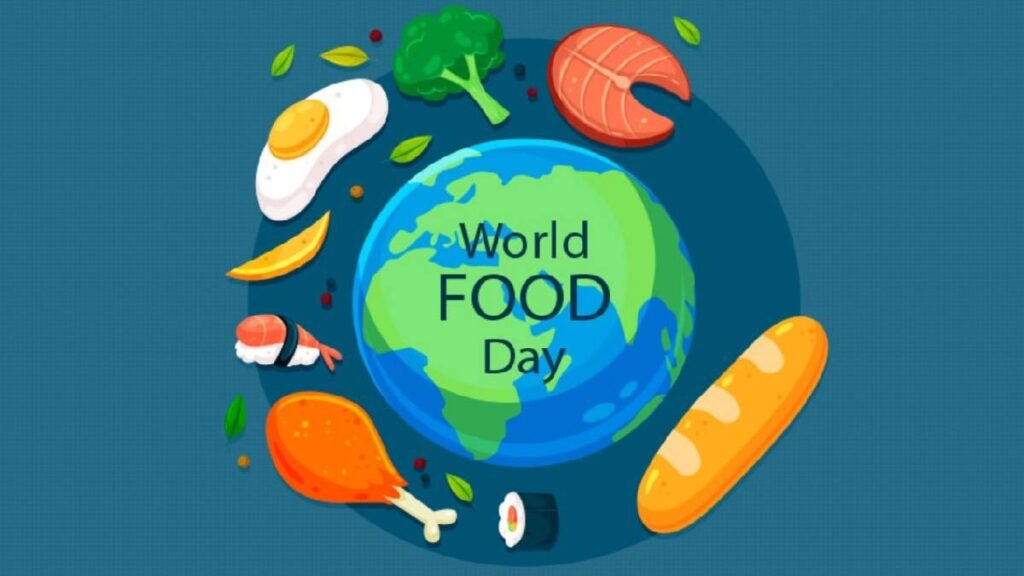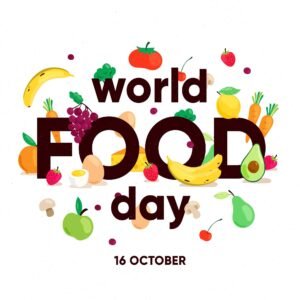World Food Day: Uniting to Eradicate Hunger and Foster Sustainable Agriculture

World Food Day, celebrated every year on October 16th, is a global initiative aimed at raising awareness and taking action against hunger. Established in 1979 by the Food and Agriculture Organization (FAO) of the United Nations, this day highlights the urgent need to promote food security, ensure sustainable agriculture, and create a world free from hunger.
In 2024, World Food Day comes with even more significance as the world battles climate change, food shortages, and increasing population pressures. This blog delves into the history, importance, and global impact of World Food Day while offering insight into what individuals and organizations can do to contribute to the cause.
The History of World Food Day
World Food Day was born out of the necessity to address the growing issue of hunger and malnutrition across the globe. Established by FAO during the 20th session of its Conference in 1979, the event initially aimed to shed light on the significance of food security and create public awareness about the situation of global hunger. Since then, World Food Day has grown to become one of the most celebrated international days, observed by more than 150 countries.
The day marks a time for reflection and action, allowing individuals, organizations, and governments to come together to address the challenge of ending hunger. Each year, the event has a unique theme centered around promoting food sustainability, with 2024 focusing on “Water: the Heart of Global Food Security.” This theme aims to address the need for better water management to ensure agricultural productivity and food security.

The Importance of World Food Day
1. Raising Awareness on Global Hunger
One of the main objectives of World Food Day is to raise awareness about the prevalence of hunger around the world. According to the FAO, about 828 million people still go to bed hungry every night. The COVID-19 pandemic, climate change, conflicts, and economic slowdowns have further exacerbated food insecurity. World Food Day highlights these challenges and provides a platform for discussing solutions to combat hunger globally.
2. Encouraging Sustainable Agricultural Practices
A key focus of World Food Day is encouraging sustainable agriculture. In a world facing severe environmental challenges, including climate change and deforestation, the need for eco-friendly farming practices is more significant than ever. Sustainable farming not only protects the environment but also ensures food security for future generations by promoting the responsible use of resources such as soil and water.
3. Fostering Global Cooperation
World Food Day fosters international cooperation between governments, businesses, farmers, NGOs, and individuals. It encourages the sharing of ideas, knowledge, and resources to tackle hunger and create long-term solutions. The event also emphasizes the role of local communities in strengthening food systems and promoting responsible consumption.
How Climate Change Affects Food Security
Climate change poses a significant threat to global food security. Rising temperatures, irregular rainfall patterns, and extreme weather events such as floods and droughts devastate agricultural productivity. As a result, crops may fail, livestock can suffer, and entire communities may face hunger.
For example, Africa and South Asia are particularly vulnerable to the impacts of climate change on food production. Unpredictable weather patterns disrupt planting and harvesting cycles, making it harder for farmers to predict the best crop cultivation times. This unpredictability, water shortages, and desertification create a looming crisis for food security in these regions.
In line with the 2024 theme focusing on water management, it is essential to recognize that water scarcity is a growing issue. Around 2.3 billion people live in water-stressed areas, making efficient water usage a critical aspect of ensuring sustainable food production.
The Role of Individuals in Fighting Hunger
While governments and organizations play a significant role in fighting hunger, individuals also have a crucial part to play in this mission. Here are some actions you can take to contribute to the cause:
1. Reduce Food Waste
Food waste is a significant contributor to hunger. Globally, nearly one-third of all food produced for human consumption is wasted. By adopting practices such as buying only what you need, storing food properly, and composting, you can help reduce waste and contribute to a more sustainable food system.
2. Support Local Farmers
Buying local produce supports small-scale farmers and encourages the consumption of locally sourced food. This can reduce the carbon footprint associated with transporting food over long distances and provide farmers with the income they need to sustain their operations.
3. Raise Awareness
Use your voice to raise awareness about hunger and sustainable agriculture. Whether it’s through social media, writing blogs, or participating in community events, spreading the word can inspire others to take action.
4. Volunteer or Donate
Many organizations around the world work to combat hunger and promote sustainable agriculture. Consider donating to food banks, volunteering at soup kitchens, or supporting international organizations such as the World Food Programme (WFP) or FAO.
Sustainable Agriculture: The Key to the Future
Sustainable agriculture is a practice that focuses on producing food in ways that are environmentally friendly, economically viable, and socially responsible. It involves adopting methods such as crop rotation, organic farming, and agroforestry, all aimed at conserving biodiversity and reducing the carbon footprint of food production.
Governments and international organizations have a crucial role to play in promoting policies that support sustainable agriculture. By investing in research and development, promoting eco-friendly farming techniques, and ensuring fair trade, the world can move towards a food system that is both productive and sustainable.
Conclusion
World Food Day serves as a reminder of the challenges we face in achieving global food security, but it also highlights the power of collective action. Whether through raising awareness, adopting sustainable practices, or supporting local farmers, everyone can contribute to creating a world where no one goes hungry.
As we celebrate World Food Day in 2024, let us recognize the critical importance of water in ensuring food security and commit to protecting our planet’s resources for future generations. Together, we can build a more sustainable, hunger-free world.




